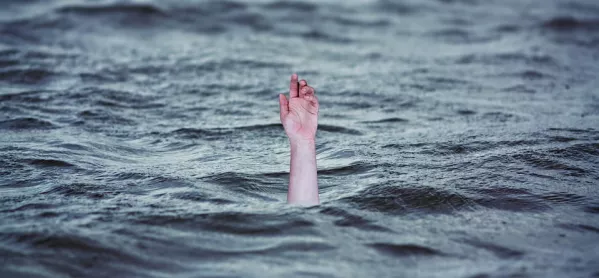The government is failing to ensure that young people are being taught about action that could help to tackle climate change, MPs have heard.
Labour MP Kerry McCarthy told a parliamentary debate that she called about environmental and food system education this week that references to climate change in the national curriculum were restricted to science and geography.
And even then, she said it was “mostly in relation to the technical causes and processes, rather than the impact of climate change on individuals and communities”.
The Bristol East MP, who sits on the Commons Environment, Food and Rural Affairs Committee, added: “The situation is piecemeal and insufficient. We are failing to teach young people about the real-world impacts of climate change or the action that can be taken to mitigate it.”
She told MPs that key stage 3 science only includes reference to “the production of carbon dioxide by human activity and the impact on climate”, while “key stage 4 science only mentions the effects of increased greenhouse gases on the Earth’s climate system and supposed ‘uncertainties’ in the evidence for climate change”.
Meanwhile, she said that the geography syllabus “has only passing reference to the changing climate from the ice age to the present day, and how human and physical processes can change the environment”.
Environmental education in other countries
She also noted that academies and free schools do not have to follow the national curriculum, “so they are not required to teach environmental or climate change issues at all”.
Ms McCarthy listed a number of countries that had made climate change education compulsory, including Brazil, which she said required it to be taught in all subjects from 1998, and added: “If those countries can do it, we ought to do it in the UK, too.”
In response, Anne Milton, minister for apprenticeships and skills, said that in key stage 2 science, children “will learn that environments can change and that that can pose dangers to living things”.
Regarding key stage 3 science, she told MPs: “Crucially, pupils will also be taught specifically about the production of carbon dioxide by human activity and the effect that that has on the Earth’s climate.”
And she added that key stage 3 geography “covers how human and physical processes interact to influence and change landscapes, environments and the climate, and the fact that human activity relies on effective functioning of natural systems”.
She also highlighted the new science GCSEs, introduced in September 2016, which she said include “the evidence, and the uncertainties in evidence, for additional anthropogenic causes of climate change”.
She said it also includes “the potential effects and mitigation of increased levels of carbon dioxide and ethane on the Earth’s climate, and more about ecosystems, including positive and negative human interactions with ecosystems”.
Meanwhile, she said the geography GCSE includes “the characteristics of climate change and the evidence for different causes, including human activity”.
Want to keep up with the latest education news and opinion? Follow Tes on Twitter and Instagram, and like Tes on Facebook




